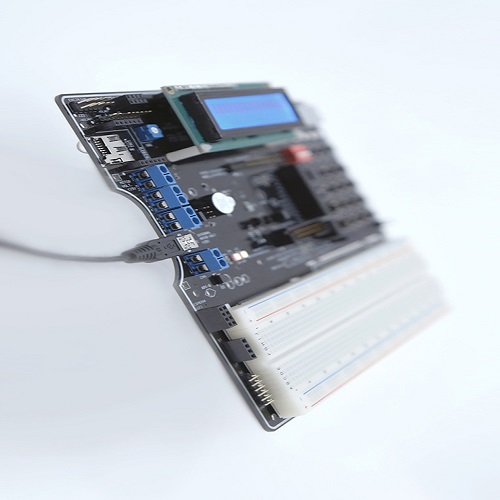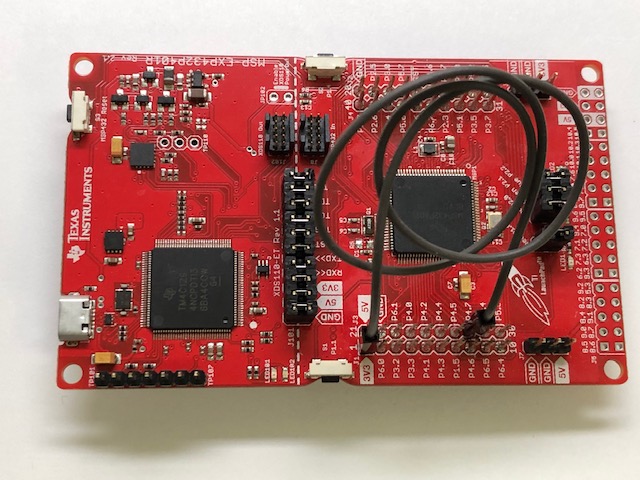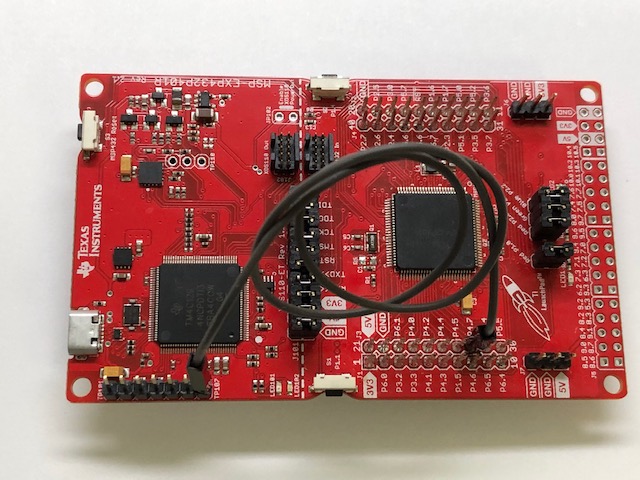|
This overheating problem only occurs on the MSP432 launchpad, not on the Tiva Launchpad.
Problem: Sometimes the MSP432 controller on your MSP432 launchpad with EduBase-V2 ran so hot that it could not be touched. The problem is caused by the launchpad running under a particular condition. We can duplicate this problem on the MSP432 launchpad with or without an EduBase-V2.
If the P4.7 rises to 3.3V faster than the VCC of
the MSP432 controller after power-up, the chip will run
hot. The P4.7 should be an input, somehow it's switched
to output LOW on this condition after power-up. Since
the P4.7 is externally connected to the 3.3V, it makes a
short circuit from 3.3V to ground. It will generate a
lot of heat in a short time. You need to turn off the
power as soon as it heats up before it destroys the P4.7
pin.
https://www.ti.com/lit/wp/
Picture 1:
Picture 2: The 3.3V of the MSP432 microcontroller from J1 rises slower because it has some propagation delay caused by the IC103 (on page5 of the schematic). The launchpad will run hot. When the MSP432 launchpad is plugged on the EduBase-V2, the P4.7 is connected to the middle terminal pin (wiper arm) of the VR2. The VR2 acts as a voltage divider. One terminal is connected to the 3.3V regulator output on the EduBase-V2 board and the third terminal pin is connected to the ground. If the VR2 is dialed clockwise at the maximum, the P4.7 is shorting to the 3.3V of the EduBase-V2. The rising time of 3.3V on the P4.7 is faster than 3.3V on the MSP432 controller, that's why that MSP432 controller runs hot with the EduBase-V2.
Solution: In the next PCB revision we will add a 220-ohm resistor in series with the middle pin of the VR2, so the P4.7 will not dead short to the 3.3V. The resistor and capacitance on the p4.7 pin will form an RC low pass filter to slow down the rising time on the P4.7 enough to avoid the CMOS latch-up.
Schematic of the MSP432 Launchpad. |


